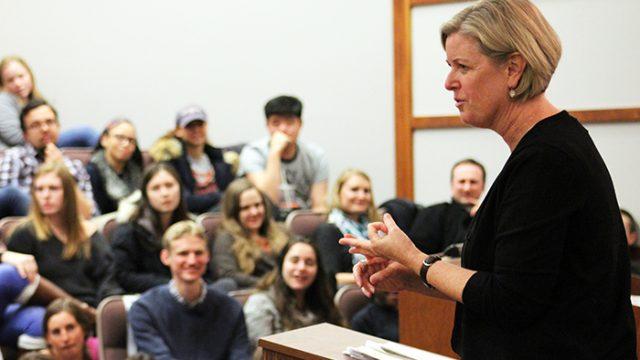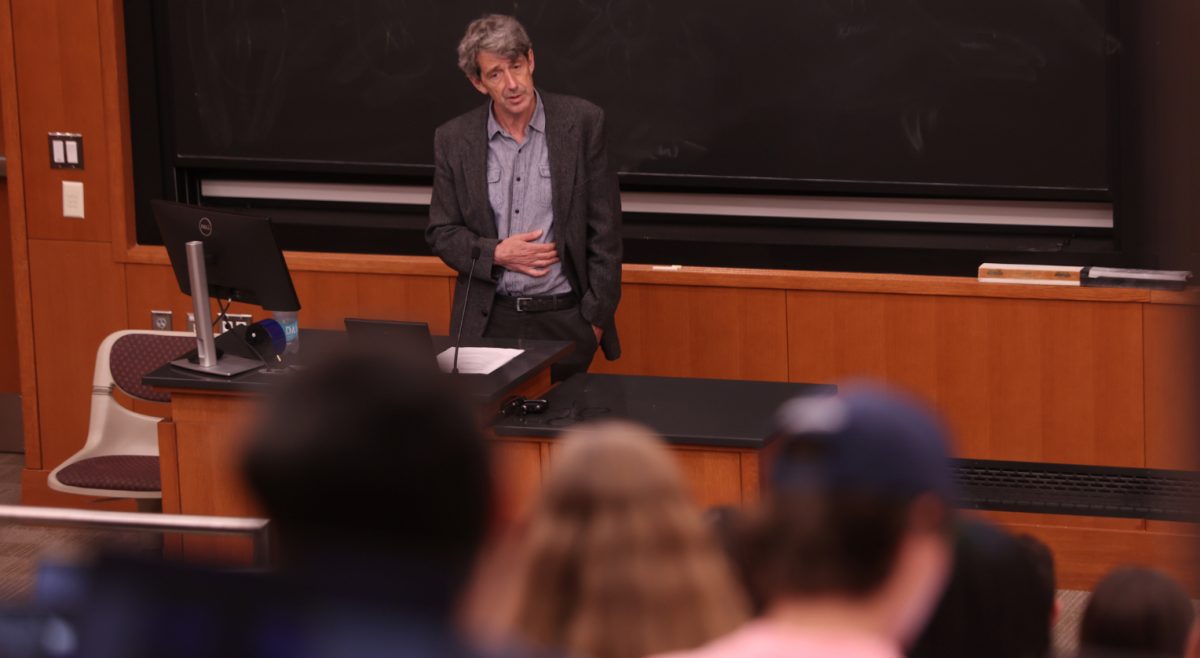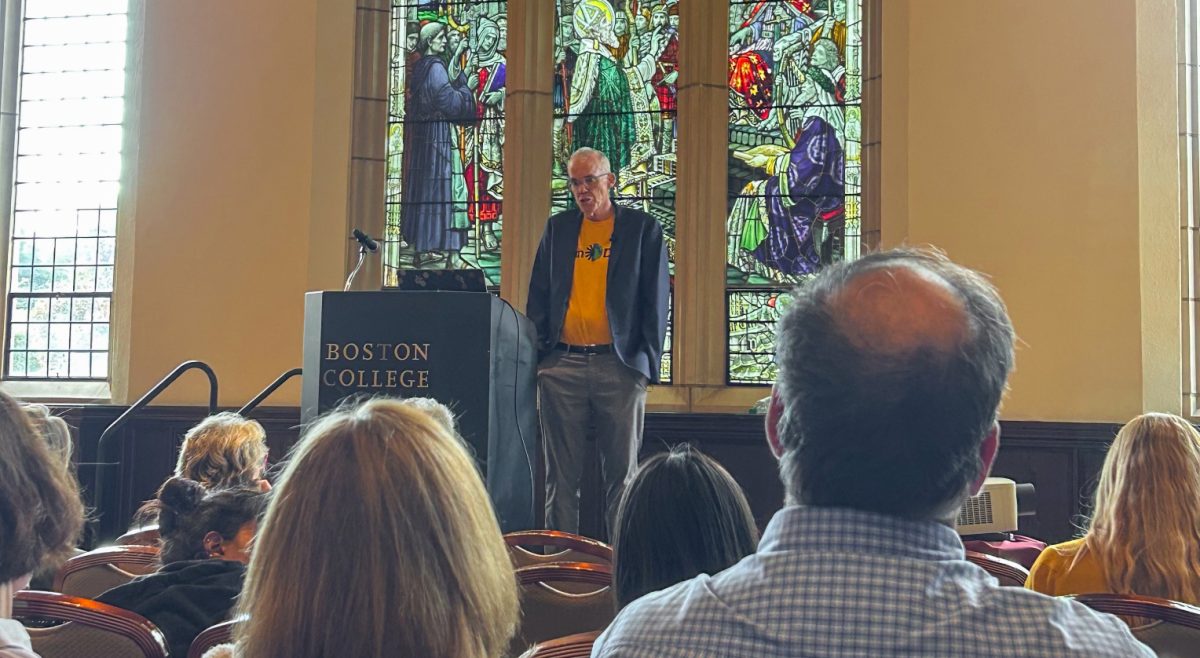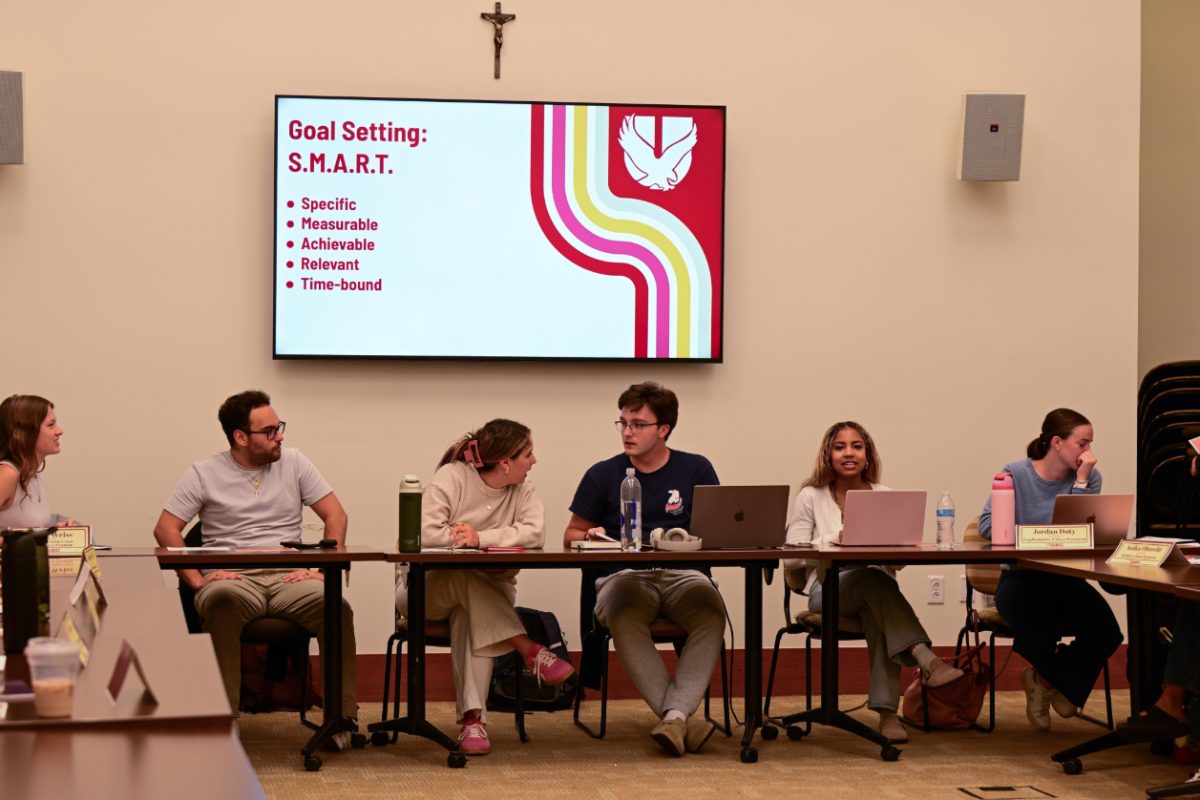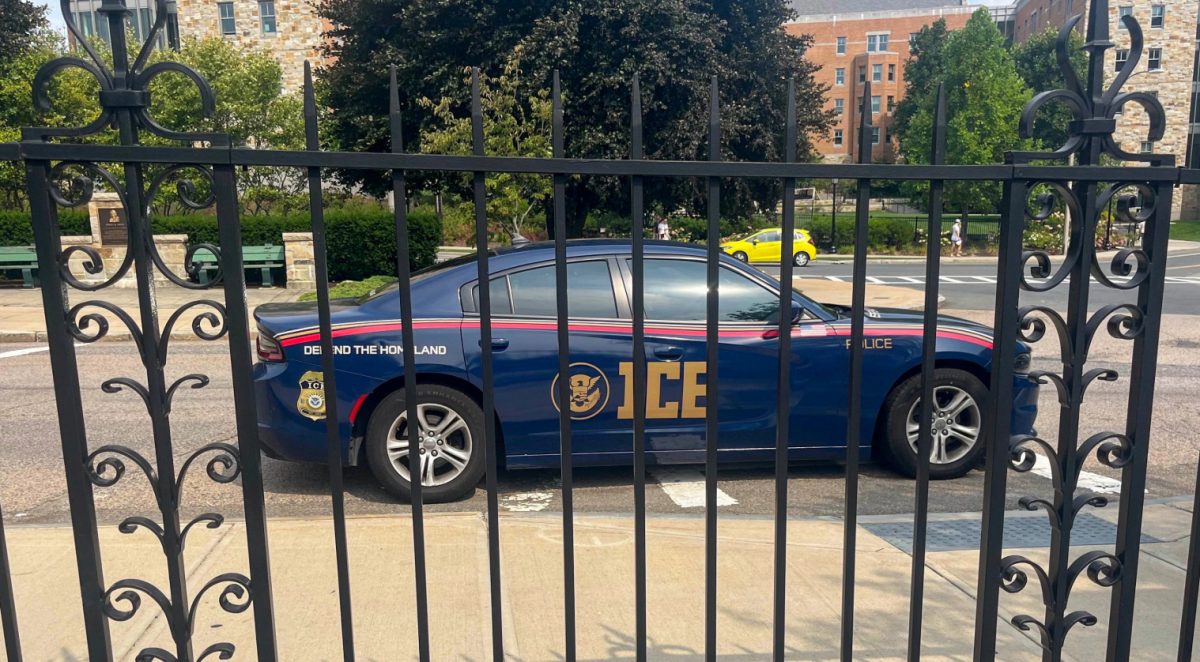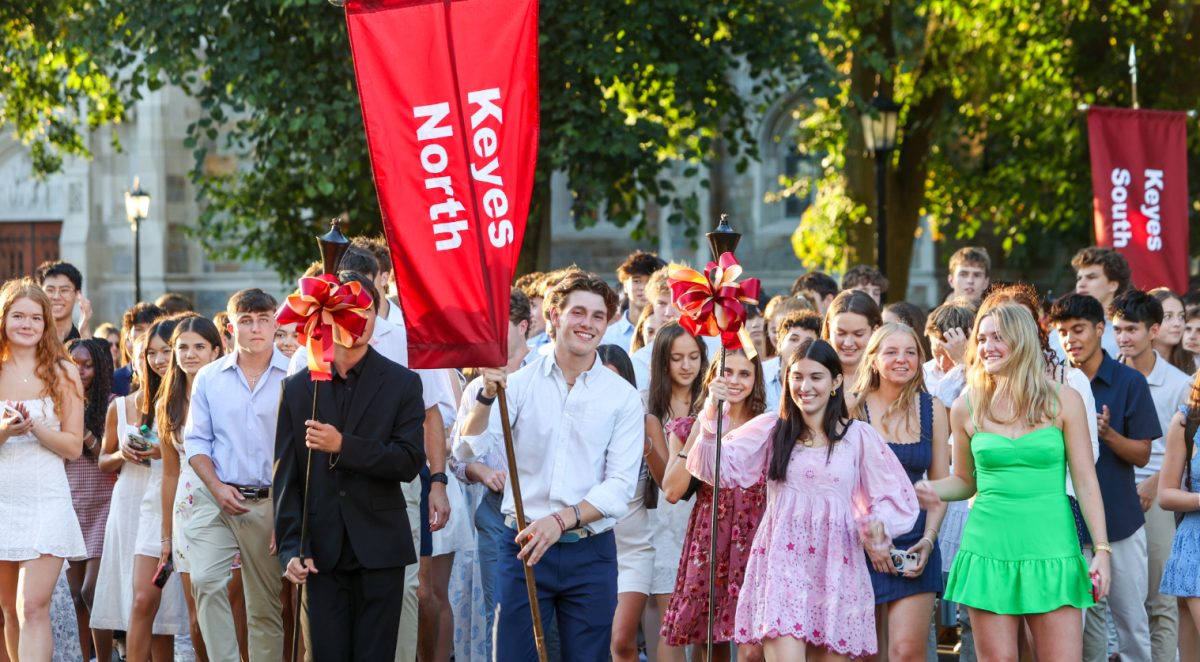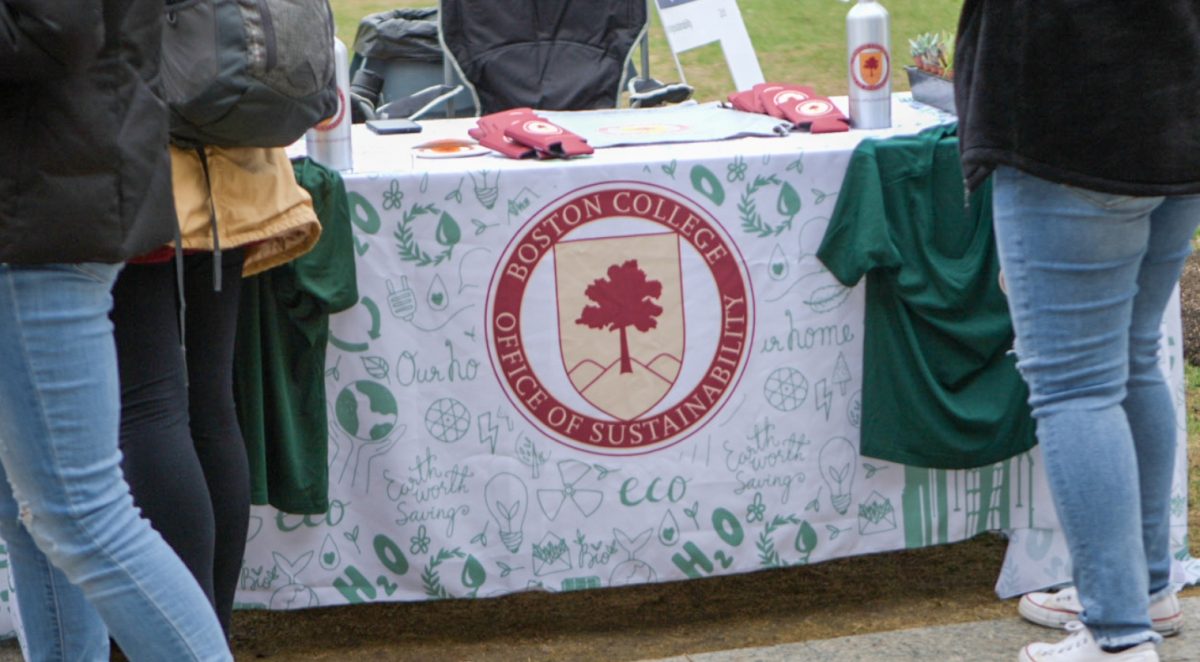A few years ago, Kerry Cronin was meeting with a group of graduating seniors—student leaders, some of the most accomplished kids at Boston College, people with their lives together. But when she asked who they were dating, she quickly realized none of them had had a relationship. They were all just hooking up.
In her famous “Save the Date” talk Thursday night, usually held around Valentine’s Day but rescheduled this year due to a snow day, Cronin highlighted the characteristics of hookup culture at BC and what’s missing in students’ romantic lives as a result.
After reading up on hookup culture and what it entailed, Cronin began doing her own investigative work into the matter.
“I started walking around campus asking people about it,” she said. “Now that seems awkward. And it is.”
Despite the awkwardness, Cronin said, these conversations were helpful for her in understanding what a typical BC student experiences in their relationships.
Generally, in regards to dating, “students in Boston College find themselves in any of three categories,” Cronin said.
The first category she deems ‘pseudo-married couples,’ who are in committed relationships and often spend all their time with their significant other.
“The problem with pseudo-married couples is that, even if people pretend to like you, people hate you,” she said.
The second category encompasses those who are ‘opting out’ by choosing—for one reason or another—not to participate in hookup culture. Often, they don’t want to get involved in a pseudo-married relationship, but also aren’t interested in merely hooking up.
The third category consists of people who are participating in hookup culture.
According to Cronin, she defines hooking up as “a physical or sexual interaction in which there is no perceived emotional content and no perceived intention of a follow-up.”
The word ‘perceived’ is the most important.
“When I’ve talked to students who’ve hooked up with people, they’ll often say ‘I have no idea what the other person was thinking or feeling, and mostly, I don’t know what I was thinking or feeling,” she said. “And for me, in the field of philosophy, this is a problem: when you don’t know what you think or feel about what you just did.”
According to Cronin, there are four different types of hookups, and then an infinite number of reasons that they happen.
The first is the pure hookup, in which you “never see that person—or pretend to never see that person—again,” she said. “You pretend you’re on your phone, but you’re not. The ‘BC-lookaway’ is real.”
Second is the regular hookup, which occurs when both partners enjoyed it the first time, so it happens again.
The third is friends with benefits, and the fourth is “the hookup with hope,” which is a result of one person’s intention to turn a hookup into something more.
According to Cronin, she’s received recommendations for additions to her list as she has traveled to different schools as a guest lecturer, such as the “revenge hookup,” the “‘I’m bored’ hookup,” the “snow day hookup,” the “ego boost hookup,” and even the “birthday hookup.”
The reason, she said, for the prevalence of hookup culture is that people view old-fashioned dating as high pressure.
“People do all sorts of strange things in order to act like they’re dating without actually dating,” Cronin said.
She decided to combat this problem, in her own small way, by creating a dating assignment for her 15-person senior capstone class one year.
“It may have gotten a little out of control since then,” she said.
According to Cronin, in her first trial, only one student completed the assignment by the end of the semester. The rest, after weeks of complaining that they “couldn’t think of anyone,” came up empty-handed.
She eventually heightened the stakes of the assignment by threatening to flunk students who didn’t complete it, and would only give them two weeks to go on a date and report back to the class. She made a list of instructions for asking someone on a date: you must ask in person, they must know it’s a date, and they must be a legitimate romantic interest. It can only last 60 to 90 minutes, and the person who asks must pay. And it has to be during the day.
“You need to learn how to send and receive signals,” she said. “Saying to someone, ‘I’d like to take you out to dinner in the North End’ means ‘I’d like to marry you.’”
By the end of the fourth or fifth semester she had taught that senior capstone class, people were taking the class because they knew Cronin would make them go on a date.
“But I realized that what students were telling me was that it’s really counter-cultural to ask somebody on a date at BC,” Cronin said. “And that’s because hookup culture promises a lot of things. But I would suggest that, at Boston College, we make a little more room for dating.”
According to Cronin, many BC students aren’t attracted to dating because, due to the intensity of college life, relationships tend to move too fast.
“We need to make more room for the type of dating that’s just reconnaissance work. Information gathering,” she said. “We need to make space to just ask a question—to say, ‘who are you?’ and ‘I want to get to know more about you.’”
Featured Image by Celine Lim / Heights Staff

